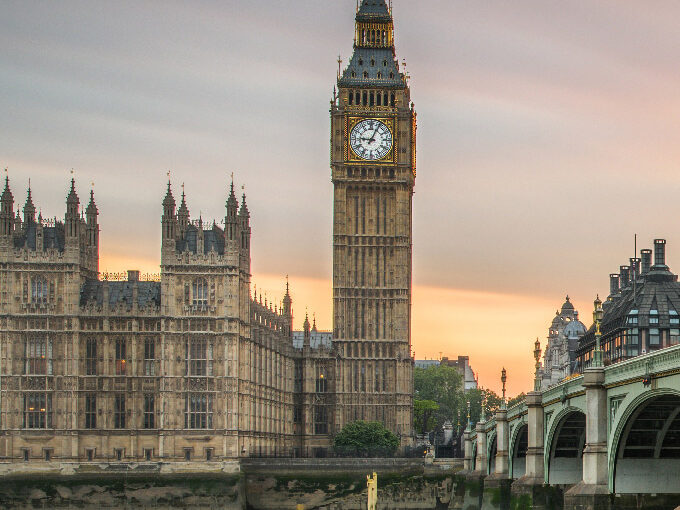With the end of the 2023-24 tax year approaching, now is a good time to consider your tax position.
This list of ten tax tips provides ideas to help make sure you and/or your business are making the most of the available reliefs and allowances. It’ll also help you understand some of the recent and upcoming changes to the tax system that may affect you.
Following the Spring Budget on 6 March 2024, we’ve updated the tip about using your CGT annual exemption to reflect the Chancellor’s announcements.
Following on from changes made to the R&D tax credit rules in April 2023 and the introduction of the digital ‘additional information’ form on 1 August 2023, further changes are being made for accounting periods starting on or after 1 April 2024. The changes include:
- The introduction of a single merged R&D scheme to replace the separate schemes for small and medium-sized enterprises (SMEs), and large companies. The new scheme provides a credit of 20% for entities of all sizes (with the exception of loss-making SMEs – see below) to be recognised as income when calculating profit before tax,
- Enabling loss-making SMEs which spend at least 30% or more of their total expenditure on R&D to choose to claim enhanced relief under the R&D intensive SMEs scheme (which is similar to the current SME scheme) instead of the new merged scheme,
- Moving the ability for most large companies to claim contracted out R&D work from the company subcontracted to do the work to the company instigating the work, and
- Excluding overseas R&D expenditure (subject to a few exemptions) from both the merged and intensive SME schemes.
The introduction of a merged R&D scheme will bring simplification for some companies, but not for all. For example, SMEs may have to decide whether the merged or intensive scheme is right for them, and where R&D work is subcontracted, an assessment will need to be made to decide which company can make a claim going forward.
If you’d like to understand more about these changes and how they apply to your company, please talk to your usual Saffery contact or get in touch with Justine Stalker or Rachel Chappell.
From 6 April 2024 the government has made several changes to the taxation of low income trusts and estates. This means that for 2024-25:
- Trusts and estates with income up to £500 will not pay tax on that income or file returns. For trusts the £500 limit is reduced proportionately for any other accumulation or discretionary trusts that the settlor has. Trusts with income above the £500 limit will pay tax on the full amount of income. This measure replaces the previous concession under which trusts and estates didn’t have to file a tax return where the only income was savings interest, and the tax liability was below £100.
- Beneficiaries of UK estates will not pay tax on income distributed to them that is within the above £500 limit for the personal representatives.
- The standard rate band will be abolished for discretionary trusts. Instead of the first £1,000 of income being taxed at 8.75% (for dividend income) and 20% (for other income), all income will be taxed at 39.35% (for dividend income) and 45% (for other income).
You should consider how each of these changes might affect any trusts or estates you are involved with, in respect of both whether tax will be payable and whether returns must be filed.
You might also be interested in our Trust services page and a recent article on inheritance tax and estate planning. If you’d like to know more about how we can help you with inheritance tax planning and/or trusts, please talk to your usual Saffery contact, or get in touch with Allan Holmes.
The capital gains tax (CGT) annual exempt amount for individuals is decreasing from £6,000 to £3,000 from 6 April 2024 (having already reduced from £12,300 to £6,000 on 6 April 2023).
Any unused annual exemption cannot be carried forward or transferred to another person, therefore you should consider whether and how you can use this year’s allowance.
Some examples of simple year end CGT planning include:
- If you haven’t fully used your £6,000 annual exempt amount for 2023-24, consider realising gains before the year end,
- If you have fully used your 2023-24 annual exempt amount, consider delaying more disposals until after 5 April 2024 (but remember the annual exemption will only be £3,000 for that year),
- If you’re married or in a civil partnership consider transferring assets between you and your spouse/civil partner, or putting them in joint names, before a sale so that as a couple you can use both annual exemptions,
- If you’ve sold a business asset check whether you’re entitled to any CGT reliefs, such as Business Asset Disposal Relief, holdover relief or rollover relief,
- At the Spring Budget 2024, the Chancellor announced that the higher rate of CGT on residential property (not qualifying for private residence relief) will be reduced from 28% to 24% from 6 April 2024. It may be worth considering whether a relevant sale can be delayed so that you can benefit from the reduced rate (note that for CGT purposes the disposal date is normally the date of exchange of contracts rather than the date of completion).
Given that the rate you pay CGT depends in part on whether you have any unused basic rate income tax band left, you may also want to make sure you’ve claimed all the income tax allowances you can.
If you’d like to talk about your CGT position and how to make the most of the available exemptions and reliefs, please talk to your usual Saffery contact or get in touch with Adam Kay.
From 6 April 2024 the dividend nil rate band is reducing from £1,000 to £500. This follows the reduction from £2,000 to £1,000 on 6 April 2023.
This means that you’ll pay income tax on all your dividend income above £500 (assuming you’ve already used your personal allowance).
The rates of tax on dividend income above the dividend allowance are not changing so they remain as follows:
| Tax band | Tax rate |
| Basic rate | 8.75% |
| Higher rate | 33.75% |
| Additional rate | 39.35% |
There’s not necessarily much you can do to plan for the fall in the dividend nil rate band. But it neatly shows how the government has used changes (or in some cases freezes) in tax thresholds to increase the money going into the Treasury from taxes. For example, an additional rate taxpayer fully using their dividend allowance will be paying £590 more tax on their dividend income in 2024-25 than they were in 2022-23.
To find out more about how we can help you with your personal tax affairs please visit our personal and private client tax services page. You can also talk to your usual Saffery contact or get in touch with Zena Hanks .
From the 2024-25 tax year the default method for calculating profits of unincorporated businesses will be the cash basis (ie income actually received minus expenses actually paid). This replaces the current rules which set the accruals basis (also known as the Generally Accepted Accounting Principles or GAAP basis, under which figures for debtors, creditors and stock have to be calculated) as the default method and which restrict the cash basis to those businesses with a turnover of £150,000 or less.
Some businesses will continue to be excluded from using the cash basis, such as: partnerships with corporate members, limited liability partnerships, Lloyd’s underwriters, where a herd basis election has been made, where a claim for profit averaging has been made, where a claim for business premises renovation allowance has been made, and where R&D capital allowances have been claimed.
The new rules also:
- Allow businesses using the cash basis to deduct any amount of interest from their taxable profits if it’s incurred wholly and exclusively for the purposes of the business. Before 2024-25 businesses using the cash basis are only allowed to deduct a maximum of £500 in interest costs, and
- Allow businesses using the cash basis to use losses in the same way as businesses using the accruals basis. Before 2024-25 losses from cash basis businesses can only be carried forward and set against future profits of the same trade, or used when the business stops trading. From 2024-25 cash basis losses can be set against other income of the same period or carried back to earlier years (subject to some general loss relief rules).
To opt out of the cash basis you’ll have to make an election within a year of the relevant self-assessment filing date. For example, an election for 2024-25 must be made by 31 January 2027. Once an opt out election is made it continues to apply unless an election is made for the cash basis to apply. (Note that this is different to the rules which apply for unincorporated property businesses, for which the cash basis is the default where turnover is £150,000 or less, where an election must be made each year.)
The ability for more businesses to use the cash basis without restricting interest deductions and loss relief will be good for some. However, before automatically using the cash basis there are other tax and non-tax issues to consider. For example:
- If your business gets paid in advance of work being undertaken you may benefit from the accruals basis,
- If you change accounting basis you may need to make transitional adjustments,
- You may need to have accounts prepared on the accruals basis for other purposes, such as bank loans, and
- Accounts prepared under the accruals basis help you understand your business’s financial position.
If you want help deciding whether to opt out of the cash basis, please talk to your usual Saffery contact or get in touch with Zena Hanks . For more on our accounting services please get in touch with Richard Collis.
The Construction Industry Scheme (CIS) requires contractors to withhold tax at either 20% or 30% from payments made to subcontractors unless the subcontractor has gross payment status (GPS). To get GPS a subcontractor must pass three tests:
- They must carry on a business in the UK doing construction work or supplying labour for construction work through a bank account (the business test).
- Annual turnover must be at least £30,000 for a sole trader. For a partnership or company the threshold is £30,000 × the number of partners/directors or £100,000 if lower (the turnover test).
- The business’s tax affairs must be up to date, including CIS payments and returns, income tax self-assessment returns, corporation tax returns and any PAYE payment and filing obligations.
Once a subcontractor has GPS, HM Revenue & Customs (HMRC) carry out annual checks to make sure the subcontractor still passes these three tests – and if not, the GPS can be withdrawn.
From 6 April 2024, compliance with certain VAT obligations is being added to the GPS compliance test. This additional part of the test applies to GPS applications and checks made on or after 6 April 2024. For existing GPS holders, VAT obligations before 6 April 2024 won’t be checked as part of the annual review.
Also from 6 April 2024, HMRC will be able to immediately withdraw GPS where it believes that the subcontractor has fraudulently provided an incorrect return or incorrect information in respect of:
- VAT,
- Corporation tax self-assessment,
- Income tax self-assessment, or
- PAYE.
Previously HMRC could only immediately withdraw GPS if it believed the subcontractor had given false information when they applied for GPS, fraudulently made an incorrect return or provided incorrect information in relation to the CIS, or had knowingly failed to comply with the CIS.
Other changes being made to the CIS from 6 April 2024 are to:
- Remove most payments from landlords to tenants from the scope of the CIS,
- Bring forward the first review of a GPS holder’s compliance history from 12 months after application to six, and
- Introduce digital applications (postal applications will still be allowed (for now), but phone applications will be limited to those who can’t apply digitally or by post).
If you have, or plan to apply for, GPS you should check that your VAT compliance is up to date.
If you want help with CIS compliance issues, please talk to your usual Saffery contact or get in touch with Stuart Daltrey . For more on how we can help property developers and property investors see our real estate page.
Following the 2024–25 Scottish Budget on 19 December 2023, from 6 April 2024 the difference between the income tax paid by Scottish taxpayers and taxpayers in the rest of the UK is going to increase.
Non-savings income for English, Welsh and Northern Irish taxpayers is taxable at the basic rate of 20%, the higher rate of 40% and the additional rate of 45%.
For Scottish taxpayers, from 6 April 2024, non-savings income will be taxable at the starter rate of 19%, the basic rate of 20%, the intermediate rate of 21%, the higher rate of 42%, the new advanced rate of 45% and the top rate of 48%.
As well as the complexity of having six income tax rates the change in rates (and bands) mean that the difference in income tax paid by the highest Scottish earners and comparable taxpayers in the rest of the UK will increase.
To ensure you don’t end up with an unexpected tax bill if you’re a Scottish taxpayer (which in general terms means you live in Scotland):
- If you’re an employee you should check your PAYE code starts with the letter ’S’ and if it doesn’t you should contact HMRC, and
- If you submit annual self-assessment tax returns you should check the calculation uses the Scottish rates and bands of income tax.
Employers should check their payroll systems are updated for the changes.
Find out more on the changes to Scottish income tax rates and bands.
If you have any questions about Scottish income tax, please talk to your usual Saffery contact or get in touch with Elaine McInroy. If you’re an employer, you might be interested in the payroll services we offer.
In the 2023 Autumn Statement, the Chancellor announced the abolition of compulsory Class 2 National Insurance Contributions (NICs), although for those with very low self-employment income, he kept the option of voluntarily paying Class 2 NICs.
From 6 April 2024, self-employed people no longer need to pay Class 2 NICs. People with trading profits of £6,725 or more will still qualify for contributory benefits, such as the state pension.
People with trading profits below £6,725 can continue to pay Class 2 NICs voluntarily (at £3.45 per week for 2024-25) to give them access to contributory benefits. If this option had been taken away the only way for such people to keep entitlement to contributory benefits would have been to pay voluntary Class 3 NICs at £17.45 per week.
It’s unclear whether the option of paying Class 2 NICs voluntarily will continue after 2024-25 as further reforms are promised. But the government has said that it “will protect the interests of lower paid self-employed people who currently pay Class 2 NICs voluntarily.”
If you want to pay Class 2 NICs voluntarily for 2024-25, make sure you include a cross in the relevant box of your tax return and pay in full by 31 January 2026.
Note that if you claim Child Benefit for a child under 12, even if you choose not to receive the payments, you automatically get National Insurance credits qualifying you for contributory benefits.
If you’d like to talk about your personal tax and NIC position, please talk to your usual Saffery contact or get in touch with Stuart Daltrey .
MTD for income tax (MTD ITSA) applies from:
- April 2026 for individuals with business and rental income over £50,000 per year, and
- April 2027 for individuals with business and rental income between £30,000 and £50,000 per year.
Under MTD ITSA an individual must:
- Keep digital records,
- Use MTD compatible software, and
- Report information quarterly to HMRC.
If MTD ITSA is likely to apply to you from 2026 (or 2027) you should consider an early switch to keeping digital records (if you’re not already). As well as making the transition to MTD easier, having digital records is likely to have other benefits too, including making the current tax return process easier.
For more on this significant change to tax compliance see our Making Tax Digital page. If you have any questions on MTD ITSA, please talk to your usual Saffery contact or get in touch with Alison Kerrey.
The Organisation for Economic Co-operation and Development (OECD) Pillar Two rules introduce a global minimum tax of 15% on all the profits of multinational groups. The rules apply to groups with a foreign presence and annual global turnover of more than €750 million.
The UK is implementing the rules for accounting periods starting on or after 31 December 2023. This is being done through the introduction of two new taxes – the multinational top-up tax (MTT) and the domestic top-up tax (DTT).
The MTT applies to the non-UK profits of UK headquartered groups. The effective tax rate for each non-UK jurisdiction is calculated and where it is less than 15% top-up tax must be paid to HMRC.
The DTT applies to UK profits. It’s calculated in the same way as MTT and is paid to HMRC. The DTT ensures that the UK keeps any top-up tax arising in the UK.
The new taxes bring with them new compliance obligations. These will usually be the responsibility of the ultimate parent of the group, but another member can be nominated instead. The requirements include:
- Registering with HMRC within six months of the end of the accounting period in which the group becomes within the scope of MTT and DTT,
- Submitting MTT and DTT information returns and self-assessment returns to HMRC within 15 months of the end of the accounting periods (extended to 18 months for the first period). An information return doesn’t need to be submitted to HMRC if it’s already been submitted to an overseas tax authority with which HMRC has an information sharing agreement, and
- Paying MTT and DTT within 15 months of the end of the accounting periods (again extended to 18 months for the first period).
If you want advice on how Pillar Two affects your business, please talk to your usual Saffery contact or get in touch with Robert Langston.
How we can help
We hope you have found the tips in this article useful. However, there are many more things you may wish to consider, depending on your individual position – so if you’d like to find out more, please get in touch with your usual Saffery contact. We can help you review your tax position and suggest ways of ensuring your business and financial affairs are structured tax efficiently.
Contact Us
Partner, London
Key experience











